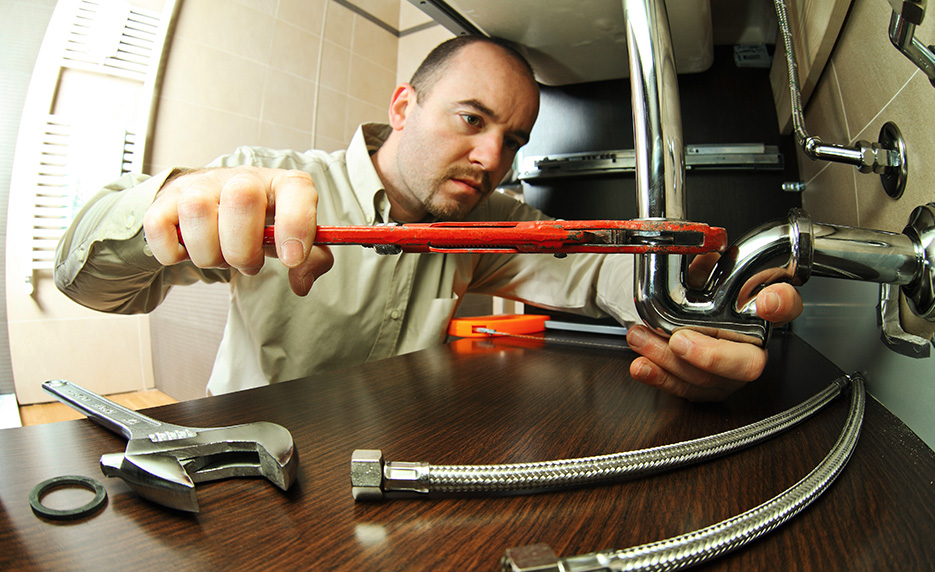
Understanding the many types of work done by electricians is essential when thinking about a career. There are a variety of different types, including power grid electricians, residential electricians, and electrical engineers. Here are some examples. Learn more about each profession by reading the descriptions. You may even consider becoming an electrician!
Electrical engineers
Electrical engineers are electrical workers, as the name implies. It is very demanding because they often have to take on large projects and invest significant amounts of money. It is not easy to balance work and family life because of the high level of competition. These are some tips to help you choose a career in electrical engineering. Apprenticeships are a good option for those who are interested in this area. It can help get you on the path to a fulfilling and lucrative career.
Electrical engineers are specialists in electrical system design. They design and supervise the manufacture of electrical equipment. There are many types of projects that electrical engineers can work on, from small-scale energy transmission to large scale. They also help to improve and design existing electric systems. Electrical engineers use a variety of skills to create products that help improve the quality of life and make the world a better place to live. Their work is diverse and always fascinating.

Telecommunications electricians
Telecommunications technicians do all sorts of work. They can configure equipment or train users in connection. Some electricians work on their own, but most need to be available for overtime or weekends. The danger of lightning and mice eating cables makes it essential to maintain your system, but even a careless worker can spill coffee on a valuable outlet. Luckily, there are many options to get your education and training to become a telecommunications electrician.
Telecommunications installers can be found in all areas, from urban areas to rural areas. Some cables run along branch lines while others are strung overhead on telephone poles. This job requires both classroom learning and hands-on experience. It is common to spend three to five years as an apprentice. Telecommunication electricians often receive the same training that electrical linemen. But if you're interested in becoming a telecom installer, it's probably best to start by earning a bachelor's degree.
Industrial electricians
Industrial electricians work in electrical installations and control. They are usually involved in the installation and maintenance of existing equipment. However, they also have to repair and maintain machines. They help clients understand the root causes of electrical system problems and communicate them to their clients. They might be required to replace critical electrical equipment or to prepare maintenance reports for industrial facilities. These reports are used to ensure the proper maintenance of a facility's electrical systems and to meet compliance requirements.
Most electricians work 40-hour weeks. Industrial electricians, however, are often available to help with extra hours or for inclement weather. These electricians often work long hours and sometimes have to sacrifice their family time. Industrial electricians often work overtime, which can include working weekends, holidays, and even during system outages. This career has a low starting salary, but it will increase as you get more experience. Working 40 hours per work week is common. You can also expect to make a living by combining your education with your training.

Residential electricians
You might be curious about what residential electricians do. Commercial electricians are usually found in large commercial buildings. Residential electricians, however, work with low-voltage systems such as 120V and 240V. Residential electricians may use thinner gauge cables and have less insulation than commercial ones. They may also require more insulation for wiring in a house. Most residential electricians use a combination sheathing and plastic conduits. Commercial electricians might use larger wires.
There are many other jobs that residential electricians can do. They can run conduit and install new electrical services in a home. They can also install circuit-breaker boxes and other residential electricity systems. They may also be involved electrical design. This includes the placement lighting fixtures, heating and air conditioning systems. They may even be involved in new construction projects. They may be involved in the design and installation of circuit breaker boxes, as well as other electrical systems.
FAQ
Is there any limit on how much money I can spend for the project?
No. No. The contractor may be willing to negotiate a lower price.
Are there any legal requirements to sign my service agreements?
No. No. You may wish to appoint one for a precautionary reason.
Legal representatives are people who act on behalf of another person. If you are a contractor you might want to appoint someone as your professional representative.
This could also mean that you hire a solicitor or an accountant. Or it could simply mean appointing someone to look after your business interests.
In most cases, the client is responsible for appointing a legal agent. Sometimes, however, the vendor may hire a legal representative.
In either case, having a legal representative means you are protected legally.
Who is responsible for a Service Agreement
You and your customer will agree on how you will provide services. This agreement outlines your customer's responsibilities and what you must do for them. It also explains when you have to pay them.
A service agreement will also indicate if additional fees are required for additional services.
All terms and condition of the service agreement should be stated. This includes delivery dates, payment methods, warranties and other terms.
Use this template to ensure that you have covered all the details of your agreement.
What are the payment terms for the service/contractor I am required to pay?
The type and amount of the service will affect the payment schedule. If you hire a contractor for a roof installation, payments would be made as soon as the work is completed. If you purchase a product, such a cooker for your kitchen, from a supplier you might only make payments after it has been tested and received.
What's the purpose of the service contract?
A Service Agreement is used to establish the terms on which your customer will purchase goods from you. It also describes how you will offer those services to them as payment.
A Sales Order Form is the most popular form of this document. You will need to state the products and prices that are being purchased by your customer. Next, you list any other items that are included in your order such as delivery fees, VAT, or insurance. The final step is to indicate when the order must be delivered and for what amount.
You may use a different document depending the nature of the transaction.
Invoices may be used instead if you're providing a service, rather than selling products.
You would probably use a Purchase Order Form if you buy something from someone else.
It is important to include all required information when drafting a sale order form.
Remember: The more detailed your sales order form is, the easier it will be for the buyer to understand.
Where can I find more information about building permits?
Ask your local government office (for instance, NSW Local Government Association), or talk to your real estate agent. They should be able tell you the best way to go about obtaining permission.
Statistics
- (v) Place or places of performance of the prime contract and first-tier subcontracts estimated at $10 million or more, if known. (acquisition.gov)
- (ii) Name, address, and telephone number of each proposed first-tier subcontractor with a proposed subcontract estimated at $10 million or more. (acquisition.gov)
- (1) Ascertain the extent to that offers are based on the payment of overtime and shift premiums; and (2) Negotiate contract prices or estimated costs without these premiums or obtain the requirement from other sources. (acquisition.gov)
- (1) Except as provided in paragraphs (a)(4) and (a)(8) of this section, if the estimated amount of the contract or subcontract is $10 million or more, the contracting officer shall request clearance from the appropriate OFCCP regional office before- (acquisition.gov)
- (3) The contracting officer may provide for a contract price adjustment based solely on a percentage rate determined by the contracting officer using a published economic indicator incorporated into the solicitation and resulting contract. (acquisition.gov)
External Links
How To
How to Write A Good Service Agreement?
You must remember two things when writing a service agreement.
First, meet the customer's needs.
You must also comply with the legal requirements of your seller.
To do this, you need to ensure that the following things are covered in your service agreement.
-
Identify the parties.
-
Define the subject matter.
-
Please specify the term of the agreement.
-
Find out if you offer any warranties.
-
Define the obligations and liabilities for both parties.
-
Set the payment method.
-
It is important to clearly define how disputes are solved.
-
Include information about any special instructions, limitations, or restrictions.
-
Assure that both the parties sign the contract.
-
Include a clause declaring that the agreement was understood and read before it is signed.
-
Be sure to have a printed copy of the agreement.
-
Once you have completed the service agreement, review it carefully before you forward it to your buyer.
-
If you find anything wrong with the agreement, contact your supplier immediately so they can fix it.
-
After everything is fixed, you can send off the revised version.
-
Don't sign the agreement until the buyer has confirmed that they have accepted all changes.
-
Keep a copy of the original agreement and the finalized one.
-
In some countries, service providers are legally responsible for quality services to their customers.
-
Keep track of all correspondence between you, the customer, and yourself in case of a dispute.
-
Professional advice is always a good idea when you are drafting a service contract.
-
After agreeing to the terms, the buyer can request a modification to the contract terms.
-
Always confirm that you have read and understood the change request before you accept it.
-
Never accept a request to change without first verifying.
-
Tell the customer why you don't want to accept the change.
-
If you still do not agree, then inform them that the change is unacceptable.
-
If the customer is unable to accept your decision you will not be able to proceed with the contract.
-
If your customer accepts, then you can move forward with the contract.
-
You must agree to change the terms of your contract if you have already agreed to it.
-
Before you send out your completed contract, be sure to check it thoroughly.
-
You should also check that it complies with the law.
-
Send the contract to the buyer after you have completed it.
-
Last but not least, be sure to save a copy of your completed contract for future reference.
-
You could lose money if you fail to comply with any of these simple rules.
-
It doesn't take much to draft a quality service agreement.
-
The more detailed, the better.